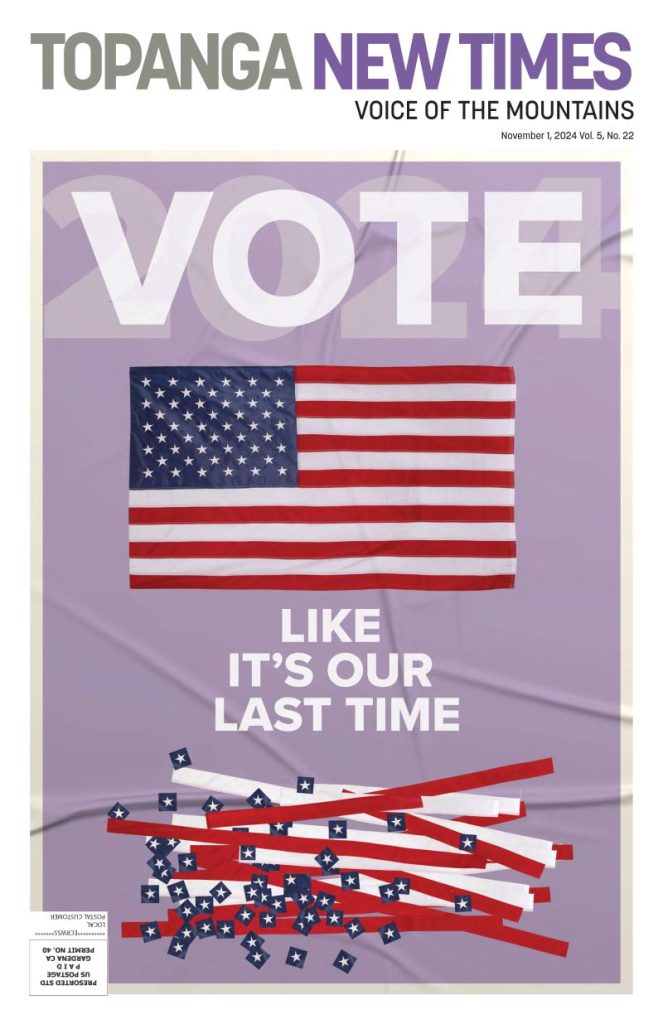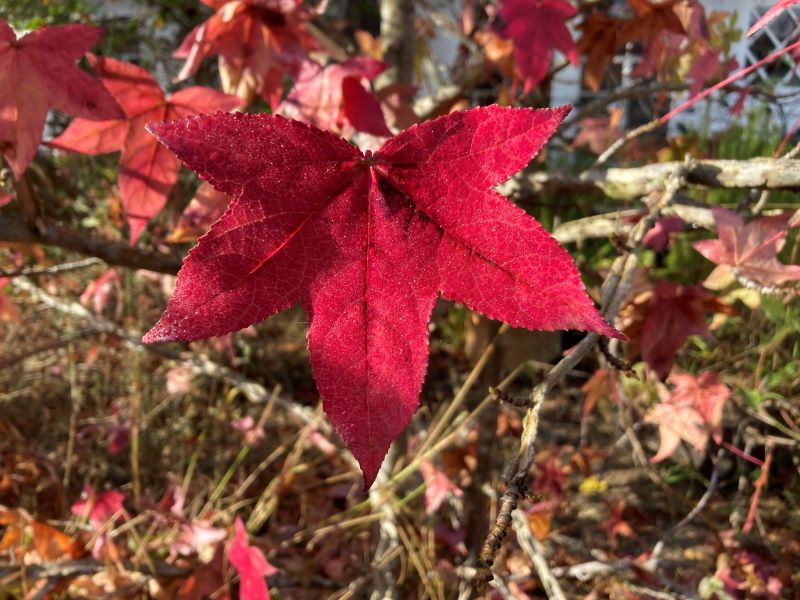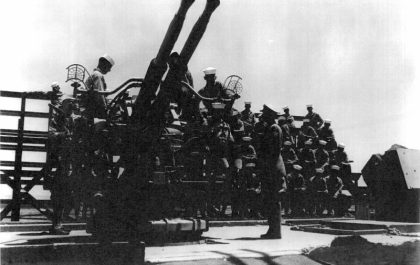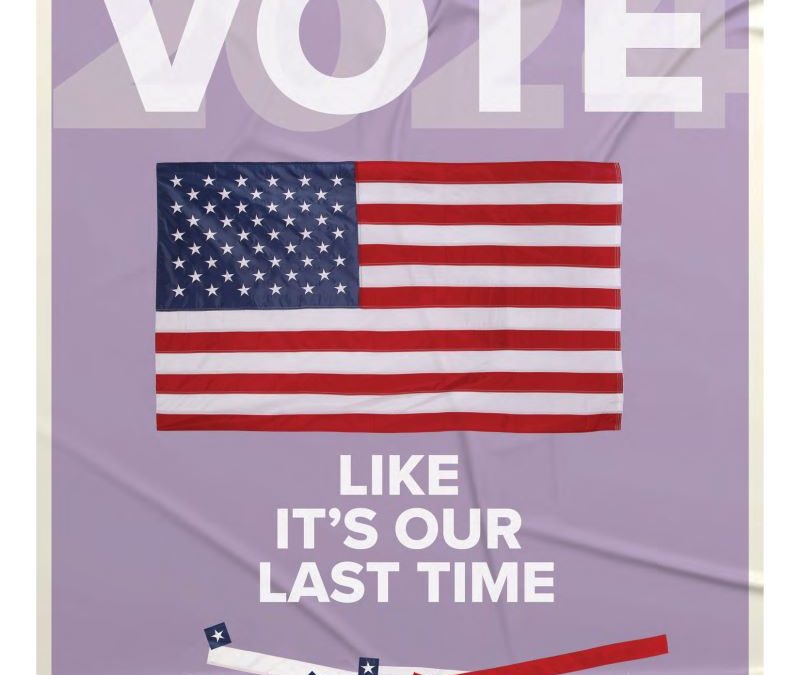
We all know how important the November 5 election is—the news cycle is unrelenting and more full of doom than a post-apocalyptic dystopian thriller—but the end of that script has not been written, and there is one thing we can all do to prevent that narrative from becoming reality: vote! Topanga residents can vote in person or drop off a completed ballot at the Topanga Library, November 2 – 4: 10 am – 7 pm, November 5: 7 am – 8 pm. For a full list of ballot drop boxes and voting centers, visit www.lavote.gov, and please, vote like our future depends on it, because once again, it does! Cover concept and design by Urs Baur.
A lot of recent science fiction and superhero movies are about time and reality: the concept of a multiverse, and timelines that either converge into one timeline where things come together, or diverge into chaos, depending on the choices made by the protagonists. We may be short on superheroes and overabundantly supplied with villains, but it feels as if one of those plots has somehow become our reality and we are hurtling towards the denouement. On Tuesday, the world is going to change, and the only power we have to influence the outcome of this narrative is our right to vote.
George Wolfberg Park at Potrero Canyon opened in 2022, after a tortuous process that included decades of community advocacy. The park, which extends from the highlands of Pacific Palisades, down to Pacific Coast Highway at the site of a former massive landslide, was recently recognized with the Chairman’s Award at the 54th annual Los Angeles Architectural Awards, recognizing “innovative projects that advance Los Angeles’ design legacy and promote community well-being.”
The park offers passive recreation—walking, biking, enjoying the view—and is the largest in Pacific Palisades. It is a peaceful place on the surface, but that surface covers massive buttresses that stabilize the canyon’s unstable slopes and an advanced drainage system to prevent the ancient landslide underfoot from reactivating. This project also restored and revitalized an important riparian corridor that was lost beneath earlier efforts to mitigate slide activity. George Wolfberg Park is a reminder of how activism makes a real difference, even when the process is slow. This land is a park because residents cared enough to make it happen, against all odds.

Sidewalks and bike lanes are coming to Pacific Coast Highway in Malibu. Caltrans, the state agency that owns the road, has been calling for both things for several years. Now, a new law makes the improvements mandatory. The project is part of short-term, medium-term, and long-term proposals being presented as part of the Pacific Coast Highway Master Plan Feasibility Study. The study comes in response to the high number of fatalities on this stretch of PCH.
The feasibility study covers the entire 21-mile stretch of Highway 1 in Malibu, from Topanga to Malibu’s western city limit near the Ventura County line. Major changes will be a challenge in places where the road is squeezed between the ocean, the cliffs, and the wall-to-wall houses, but the plan calls for eliminating land-side parking, adding new, back-in angled parking near beach access ways, and building a barrier between cars and bikes. It also includes suggestions like traffic circles, a reduced-speed boulevard in the vicinity of the Malibu Pier, and reducing the often high-speed western part of the road to one lane in each direction in an effort to calm traffic and reduce speed.
It’s the first time since the 1940s that this stretch of highway has been seriously considered for an overhaul. The project is fueled by anger over the appalling frequency of road-related fatalities—63 in recent years, including the death of four young Pepperdine students last year. Many of the improvements being suggested are optional, but the sidewalks and the bike lanes are mandatory. The next public engagement meeting on the project is scheduled for December 11 at Malibu city hall. Learn more at https://engage.dot.ca.gov/f1336.
The park in the Palisades and the PCH safety improvements are very different projects, but they have three major things in common: they are projects initiated by grassroots community activism, they are only made possible with the support of receptive elected officials, and while they can take years or even decades to become a reality, they ultimately improve the quality of our lives. They are also a reminder that elections have consequences, big and small. The only way to get things done at the local, state, and national level is to elect likeminded people who are willing to listen and get things done. If we want environmental protections, parks, highway safety, civil rights, equal rights, and access to essential programs like education and medical care, we have to advocate for those things and elect the people who are committed to them, too. We can’t do this on our own. We need representation. Please vote.
Stay safe, be well. Vote like our lives depend on it, because they do.





